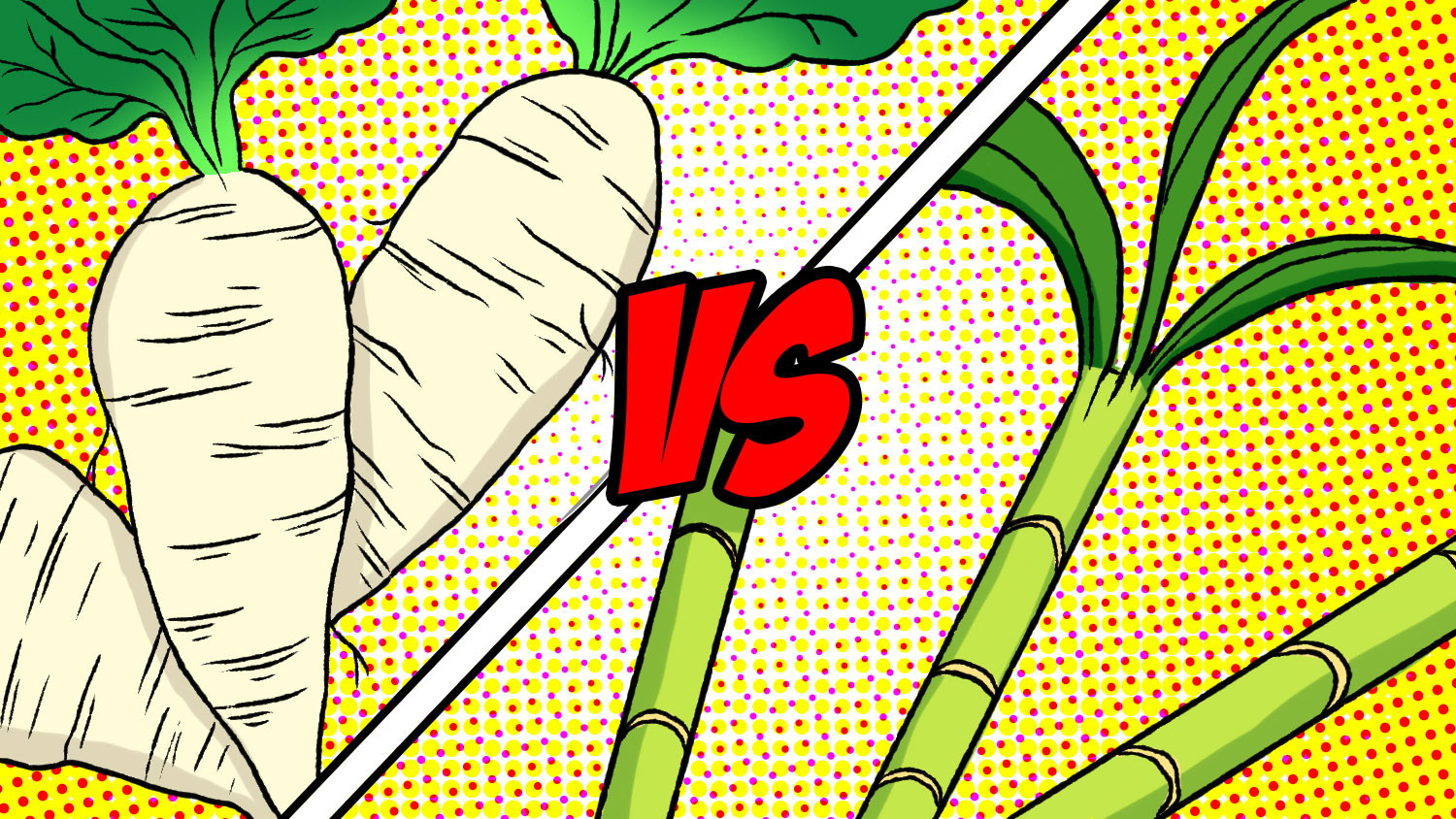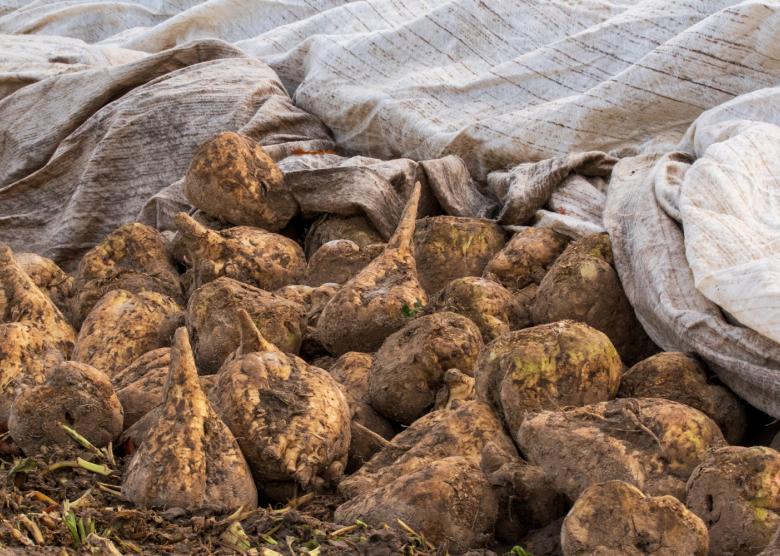Why Choose Beet Sugar vs Cane for Your Next Sweetening Project?
Why Choose Beet Sugar vs Cane for Your Next Sweetening Project?
Blog Article
The Terrific Argument: Beet Sugar Vs Cane and Their Effect on Health
The continuous debate surrounding beetroot sugar and cane sugar increases vital questions regarding their corresponding health influences and more comprehensive effects for consumer choices. While both sugar share a similar chemical make-up, their origins and processing approaches may influence not just nourishment yet additionally environmental sustainability. As health-conscious people evaluate the benefits of each choice, the implications of pesticide exposure and farming practices enter emphasis. This discussion welcomes us to consider not simply the sweet taste we choose, but the significant results of those options on our wellness and the planet. What might this imply for future intake patterns?
Introduction of Sugar Sources
Sugar, an extensively consumed sweetener, mainly originates from 2 major sources: sugar beetroots and sugar walking cane. Sugar walking cane thrives in exotic and subtropical environments, with significant manufacturers consisting of Brazil, India, and China.
On the other hand, sugar beetroots are primarily grown in warm regions, with substantial manufacturing in countries such as the USA, France, and Germany. The beetroots are gathered from the ground, cut, and based on a procedure that transforms the removed juice right into granulated sugar. While both sugar resources eventually yield sucrose, their farming techniques, processing methods, and geographical distributions vary significantly.
These differences can influence not only the environmental impact of sugar manufacturing however likewise the economic elements of sugar prices and trade. Comprehending the origins of these sugar is crucial for customers and policymakers alike, as it lays the foundation for educated discussions concerning their wellness effects and sustainability.
Nutritional Contrast
When examining the dietary accounts of beet sugar and walking cane sugar, both resources share a comparable make-up as they mostly are composed of sucrose. Sucrose is a disaccharide, composed of glucose and fructose, and is accountable for the sweet taste associated with both sugars. The refining procedures for both beet and walking stick sugar yield items that are mainly pure sucrose, with minimal traces of vitamins, minerals, or other nutrients.
In terms of calorie material, both beet and cane sugars supply approximately 4 calories per gram. Neither type of sugar supplies considerable dietary advantages past energy arrangement, as they do not have crucial vitamins or minerals. Nonetheless, the visibility of trace elements, such as magnesium, calcium, and potassium, can vary a little between the two, mainly as a result of the farming practices and soil conditions in which they are grown.
Furthermore, the glycemic index worths of beetroot sugar and cane sugar are equivalent, showing similar results on blood sugar levels. In general, from a nutritional point ofview, beetroot and walking cane sugars are functionally equivalent, adding mainly to calorie consumption without providing significant wellness advantages over one another.
Wellness Ramifications
The health effects of consuming beet sugar and walking cane sugar warrant cautious factor to consider, specifically given the rising prevalence of sugar-related health concerns. Both kinds of sugar contribute similar caloric worths and can bring about raised dangers of weight problems, kind 2 diabetes, and heart diseases when consumed in extra. The body sugars both metabolizes right into glucose, which can create spikes in blood glucose levels, causing insulin resistance over time.
While there is ongoing debate pertaining to the glycemic index of these sugars, studies suggest that both can negatively affect metabolic health if eaten in huge quantities. beet sugar vs cane. Additionally, the prospective existence of impurities in beet sugar, such as pesticides from conventional farming practices, increases more wellness issues. Conversely, walking cane sugar, especially when minimally refined, may provide a slightly more favorable account due to its all-natural state
In addition, the usage of included sugars, despite the resource, is connected to unfavorable wellness outcomes, consisting of dental concerns and fatty liver illness. Moderation is important, and individuals should be conscious of this post their total sugar intake from all resources, inevitably prioritizing entire foods over added sugars for optimum health results.
Environmental Effect
Understanding the health and wellness implications of beetroot and walking cane sugar additionally results in an examination of their ecological effect, which can substantially affect farming sustainability and environmental equilibrium. Both sugar resources have distinct environmental impacts, shaped by their cultivation methods and geographical needs.

In contrast, beetroot sugar is normally expanded in pleasant environments and commonly entails diverse plant turnings. This method can improve dirt health and decrease dependence on chemical inputs. Extensive beet farming can likewise lead to nutrition depletion and pest pressures if not managed click now sustainably.
Both sugar types present difficulties and possibilities for ecological stewardship. Promoting lasting farming techniques and liable sourcing can minimize their influences, making sure that sugar production aligns with environmental preservation and long-term food safety and security.
Customer Preferences
Amidst growing recognition of wellness and environmental problems, consumer preferences for sugar kinds are increasingly influenced by assumptions of health and wellness advantages, sustainability, and ethical sourcing. Beet sugar and walking cane sugar each present unique qualities that appeal to various consumer demographics.
Health-conscious customers frequently look at the dietary profiles of these sugars, looking for alternatives perceived as much less refined or even more all-natural. Walking cane sugar, often considered the conventional sweetener, is in some cases preferred for its perceived purity and simplicity. On the other hand, beetroot sugar, which is often stemmed from genetically customized crops, encounters apprehension amongst those concerned concerning GMOs.
Sustainability is an additional substantial factor influencing customer choices. As recognition of farming practices grows, several customers go with items that line up with eco-friendly farming approaches. Cane sugar production, specifically when sourced from sustainable farms, can interest eco-conscious purchasers.
Moral sourcing plays an important function too, with customers significantly preferring products that sustain reasonable labor methods. Accreditations such as Fair Trade can boost the attractiveness of walking cane sugar in the market. Ultimately, consumer choices are formed by an intricate interaction of wellness, environmental, and honest considerations, driving demand for both beetroot and walking cane sugars in varied markets.
Verdict
In final thought, the argument between beet sugar and cane sugar incorporates use this link different variables, consisting of nutritional accounts, health ramifications, and environmental repercussions. beet sugar vs cane. While both sugars largely include sucrose and display similar calorie web content, problems relating to chemical usage in beet sugar and the ecological effect of walking cane sugar monoculture warrant cautious consideration. As consumers significantly prioritize sustainability and health, educated options regarding sugar intake become vital in promoting general health and environmental stewardship

Report this page